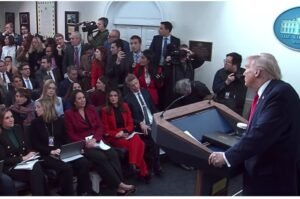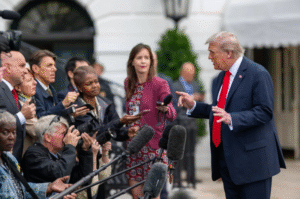
As the federal shutdown drags into its second month, President Trump is pressing Republicans to eliminate the Senate filibuster — while millions risk losing access to food assistance. His push aims to give Republicans a path to end the impasse without Democratic votes, but critics warn it would dissolve one of the few remaining checks on majority rule.
The shutdown’s toll is mounting. Federal workers remain without pay, and states are preparing for widespread disruptions to the Supplemental Nutrition Assistance Program (SNAP). Nearly 42 million Americans could see benefits lapse after November 1, dealing a blow to households already strained by higher prices and rising debt.
The Senate, meanwhile, narrowly voted to reject the administration’s latest round of global tariffs — an unusual bipartisan rebuke that underscores deep unease over the White House’s trade strategy.
Political and Economic Undercurrents
Trump’s demand to remove the filibuster highlights the broader erosion of congressional norms that once required compromise. What was once viewed as a stabilizing rule has now become the next partisan battleground — and its elimination could accelerate future policy swings between administrations.
Economically, the risks are tangible. SNAP benefits support billions in monthly grocery purchases; without them, the ripple effects would hit food suppliers, retailers, and local economies alike. Combined with the market anxiety surrounding trade volatility and stalled federal operations, the broader cost of gridlock is beginning to show.
The Bigger Picture
The standoff has evolved from a policy dispute into a test of governance itself. Calls to abandon the filibuster reveal how polarized Washington has become — and how little room remains for negotiation. For everyday Americans, the consequences are already concrete: missed paychecks, suspended benefits, and deepening uncertainty about whether their government can still function for them.






















































